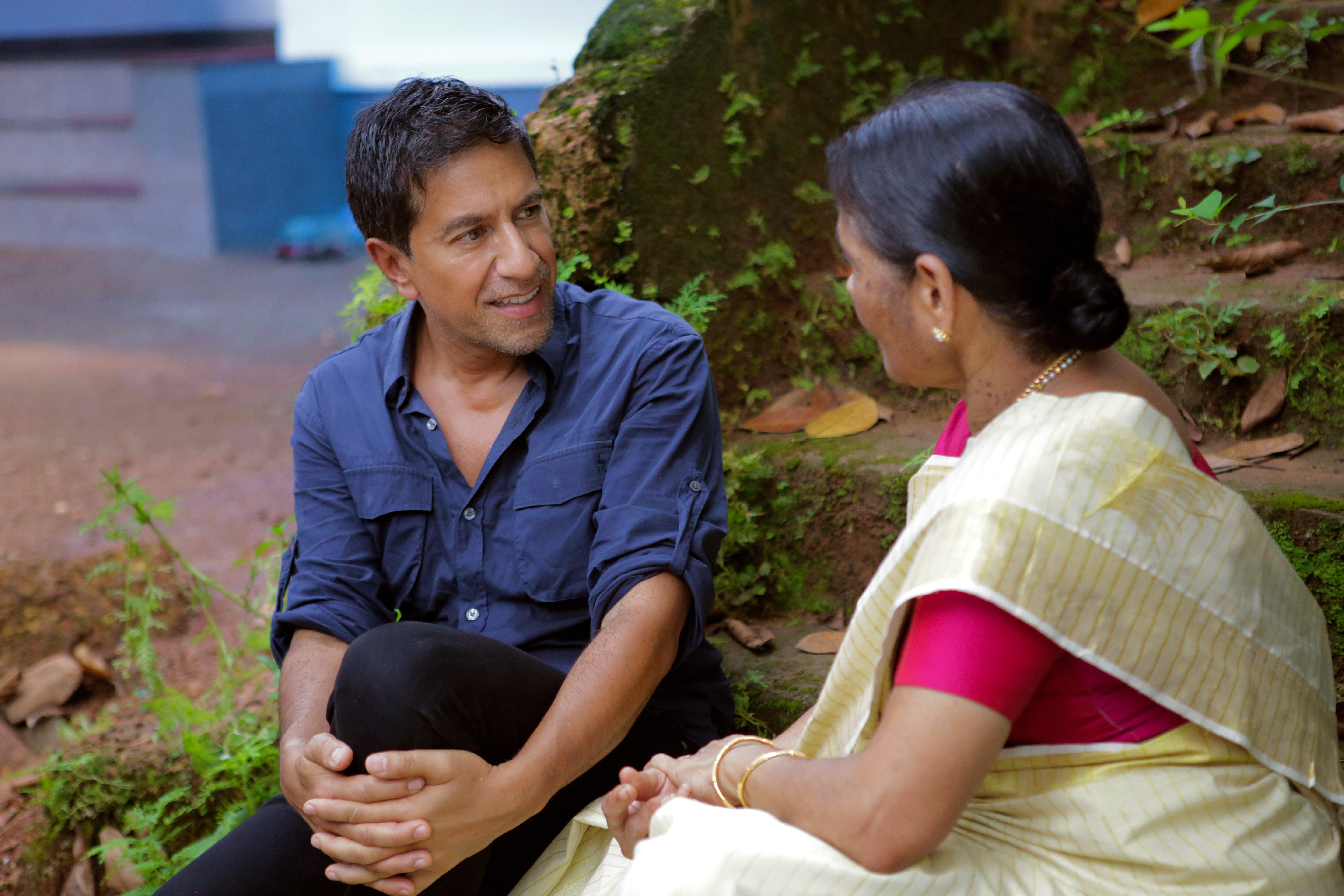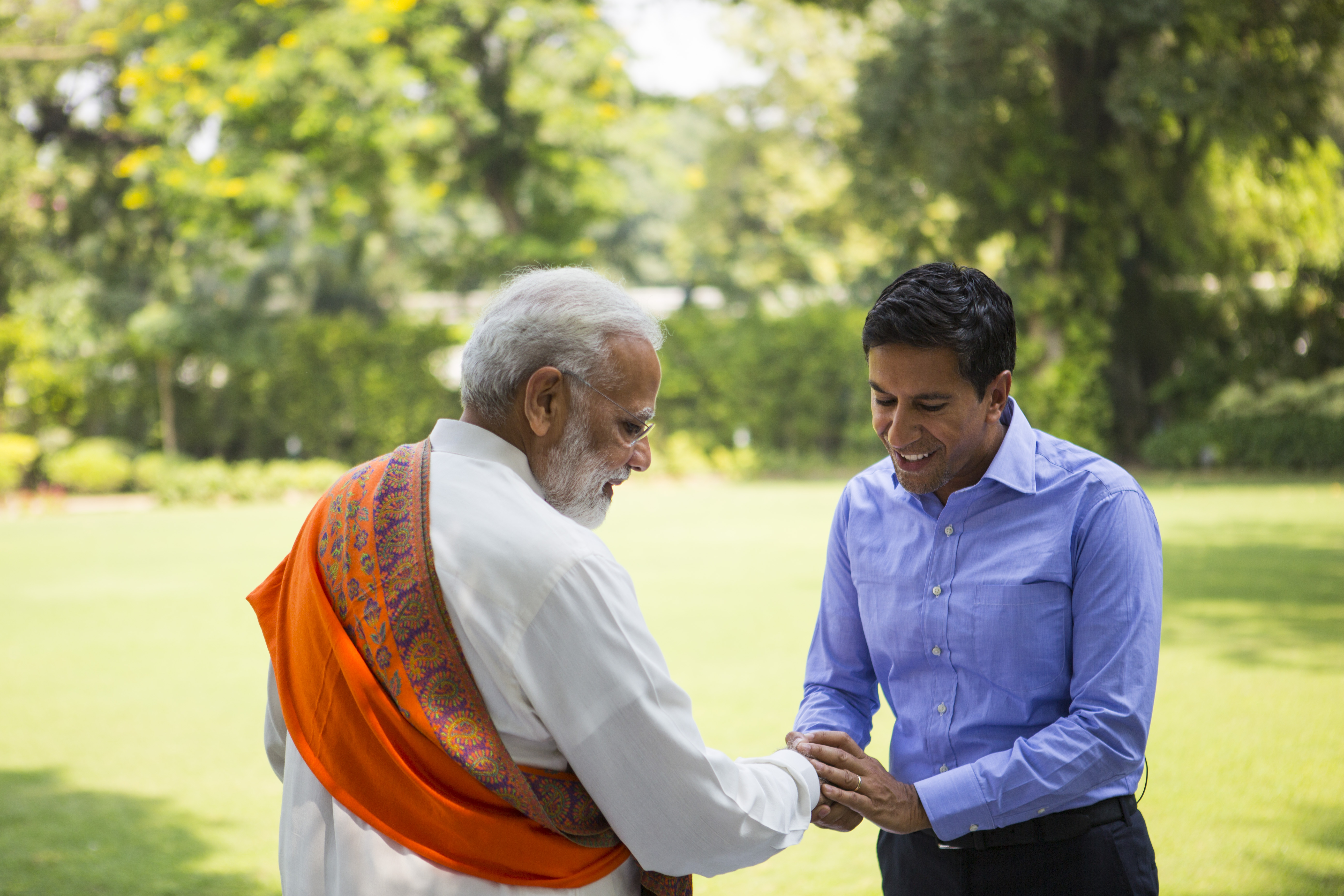
Dr. Sanjay Gupta has experienced all sides of the global health system.
As a practicing neurosurgeon, Dr. Gupta has been a member of the western medicine system for over 25 years.
He is also the Chief Medical Correspondent for CNN, and since 2001 has covered the most important health stories in the United States and around the world.
Dr. Gupta has also long been in search of the secrets to living life to the fullest. This quest recently took him to the longest-lived and happiest cultures around the globe — far-flung locations across Turkey, Japan, Italy, Norway, India, and Bolivia — for the CNN Original Series “Chasing Life.”
I recently talked with Dr. Gupta about the keys to health and longevity, based on all of his learnings from medicine, journalism, and experiences around the world.
…
Dr. Gupta is a big champion of the medical advances that have taken place in the United States, but he is concerned about the current health trends.
“The United States is the only country in the developed world to have decreases in life expectancy three years in a row,” he told me. “Nowhere else in the developed world has that happened, and it hasn’t happened in the United States for 100 years.”
Dr. Gupta points out that the problem is mostly self-inflicted — driven by drug overdoses, suicides, and liver cirrhosis from alcoholism.
“These are called the ‘deaths of despair’ because there seems to be a psychological stress that’s really driving this,” he says. “So we can focus on the big-budget heart disease therapies and cancer therapies — and we should continue to do that — but until we deal with the psychological stress that is pretty unique to Americans, it’s going to be very hard to make progress in terms of life expectancy overall.”
Dr. Gupta has seen first-hand that other countries are doing a better job protecting against these psychological stresses. In fact, the one commonality he found across all of the healthiest and happiest societies — the ones outliving Americans — is the presence of true social connection.
Dr. Gupta acknowledges that the idea of social connection is a bit of a soft concept, but he says social bonds are critical for health and vitality. “I think for many people, especially in the United States where rugged individualism is sort of the mantra, you see social time as a luxury,” Dr. Gupta told me. “In places where you actually invest in people being social, that ends up being really protective against many of the toxic stressors I was talking about.”
Prioritizing social connection over individual achievement is a good first step toward fixing what ails us. Next, I wanted to dig deeper into other major pillars of health — specifically diet and exercise.
…
Dr. Gupta has studied the medical literature and seen diet and exercise routines from around the globe, so I wanted to know what he practices in his own life.
As it relates to diet, he said healthy eating really comes down to two basic things. “Eat a plant-based diet as much as possible and avoid added sugar,” he says.
As Dr. Gupta approaches his 50th birthday, and with a family history of heart disease, those are the two main dietary rules he now follows (which requires some discipline since he confesses to having a bit of a sweet tooth).

He is also a big proponent of intermittent fasting. “And I’m not talking about a day at a time,” he says. “I’m talking about a few days at a time where you’re doing very low calories.” That can mean only 300 calories a day plus water for several days in a row.
Dr. Gupta says this type of fasting creates a sort of evolutionary pattern in your body — your young cells become more likely to survive and reproduce, and your old and low-performing cells tend to die away. The result is a greater percentage of cells in your body that are young and productive.
He says this whole process actually feels quite good. “At day two of intermittent fasting, when all of the sudden your body starts producing brand new young stem cells to replace the old poor-performing cells, people almost universally describe that as euphoric,” he told me. You might think a multi-day, low-calorie fast would be highly uncomfortable, but Dr. Gupta says it is just the opposite.
Dr. Gupta is also a habitual exerciser — and his exercise routine is also built around two primary principles. The first is engaging in some form of exercise every day. As a triathlete, Dr. Gupta engages in cardio and high-intensity interval workouts focused on running, swimming, and biking. But he also includes resistance training as an important part his routine.
His other big exercise rule is simply to avoid sitting whenever possible. “Any time you’re about to sit, ask yourself if you really need to,” he advises. Dr. Gupta says sitting for long periods of time disables the body’s natural defense mechanisms. The body is essentially sent a signal that it can shut down and stop working. Dr. Gupta points out, “If you look at many societies, it’s just old people who sit. Young people are either lying sleeping or they’re standing and walking.”
It’s pretty simple — If you want to age fast, take a seat. If you want to stay young, get up and move around. “Moving naturally throughout the day is not a particularly hard thing to do,” says Dr. Gupta. “It’s how we humans were designed to move.”
Dr. Gupta also says sleep has become a larger priority in his life — especially as he has gotten older — and he uses trackers to objectively measure and monitor his sleep. “I’ve noticed more than before if I don’t sleep well, I pay the price in terms of productivity the next day,” he says.
…
Putting it all together, I asked Dr. Gupta to share the No. 1 thing he recommends people do to age well and live their best life.
As he thought about his answer, he started envisioning a future in which diet, exercise, and sleep will be personalized and optimized on an individual basis. For example, while he thinks his diet and exercise routine is a good one, he acknowledges that it may not be perfect for everybody. But in the future, Dr. Gupta thinks artificial intelligence and other technology will yield programs tailored to the specific needs of each individual. Until then, he says it’s important to simply get the basics right in terms of diet, exercise, and rest.
And that’s when he arrived at his No. 1 recommendation.
“Ultimately, what’s always still going to be within our control is how we take care of our minds,” Dr. Gupta told me. “I believe that in order to best heal the body, you have to heal the mind.”
Truly dedicating time to healing the mind on a regular basis — much in the way that we would heal a broken bone or an ill-functioning heart — is Dr. Gupta’s top piece of advice.

And he says healing the mind and fighting back against psychological stress is much easier than people realize. “Even simple things like truly practicing gratitude changes your mind so rapidly and effectively that I think everything else follows from that,” he says.
Dr. Gupta says his daily gratitude practice has positively changed his life more than any other habit.
His gratitude practice includes writing — actually putting pen to paper every morning. Instead of immediately reaching for his phone first-thing, he pulls out his journal from the closet. And then he just spends five minutes writing. “It’s a combination of things that I want to do that day, but also all the things I’m grateful for from the day before,” he told me.
“It takes five minutes. My brain is different — I can tell you — at the end of those five minutes than before.”
…
Taking care of your body is important, but the true secret to health and longevity is taking care of your mind.
Andrew Merle writes about healthy living. Subscribe to his email list at andrewmerle.com.

